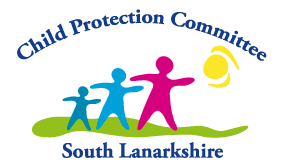Concerned about a child?
Children rarely tell if they are being abused but there may be signs that make you concerned and could be an indication of a child being abused or neglected.
The child may:
- Have unexplained bruising or bruising in an unusual place
- Appear afraid, quite or withdrawn
- Be afraid to go home
- Appear hungry, tired or unkempt
- Be left unattended or unsupervised
- Have too much responsibility for their age
- Be acting out in a sexually inappropriate way
- Be misusing drugs or alcohol.
Not all children who are abused or neglected will display these signs, and equally a child may display some of these signs and symptoms for other reasons.
At times, there may be other reasons why you are worried about a child.
For example, an adult that you know is responsible for children might be misusing drugs or alcohol or may be severely ill and you may fear this is affecting their ability to care for their children.
If a child tells you something has happened
There may be times when a child approaches you as a trusted adult to tell you about the difficulties they are facing.
- Stay calm - if you show signs of anger or disbelief, the child may stop talking for fear of upsetting you.
- Listen to the child and take what they say seriously.
- Let them know they have done the right thing by talking to you.
- Keep a note of what the child has said in their own words.
- Keep any questions to a minimum - if the matter needs to be investigated further, this needs to be done by trained professionals.
- Reassure the child they were right to tell
- Tell the child what you are going to do next. You cannot keep it a secret; you need to speak to someone who can help.
- Act promptly and immediately. Report to your line manager or designated child protection officer. if you are working or volunteering with an organisation that has these. If not, simply contact us.
It's important that you don't make any false promises or express shock or anger at what is being said to you.
Don't interpret what the child is saying to you – just record and report. Any investigation must be left to the police and social work.
Reporting your concerns
When a referral is made to social work or police, it’s best if you can provide the following information if you have it available – but don’t delay the referral.
- The child’s name, address and date of birth
- Parents' names and current whereabouts
- Child’s present whereabouts
- Your details – eg your involvement with the child
- What the concerns are and why they have arisen
- Any recent changes in the child’s behaviour or presentation
- Whether the child said anything that made you concerned
- Whether there are other children in the household
- Whether there are any other agencies currently involved with the family (if known)
- Whether there have been any previous concerns about this child or other children in the household
- Whether the child has any disabilities or other additional support needs
- Whether there are any cultural or religious factors that need to be taken into account
- Whether the parents are aware of the concerns and if so what was their reaction.
Whether the parents are aware of the concerns and if so what is their reaction Contact the police or social work.
